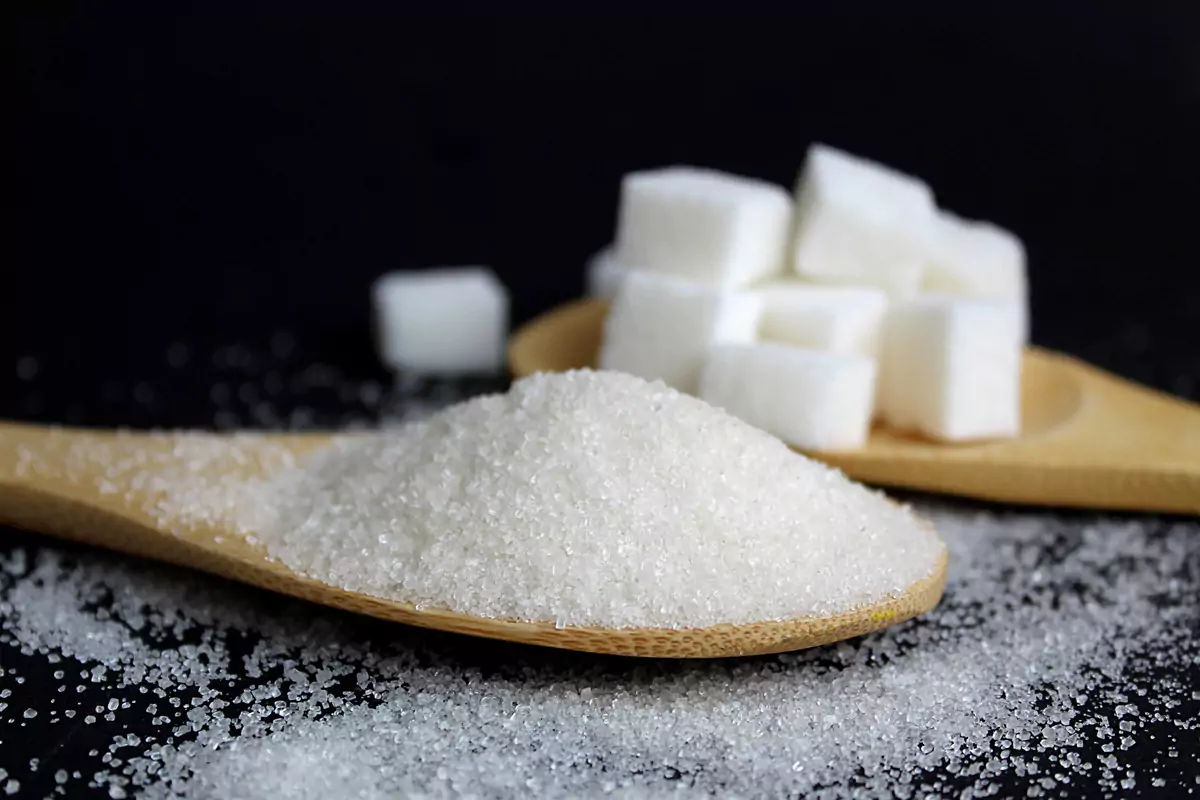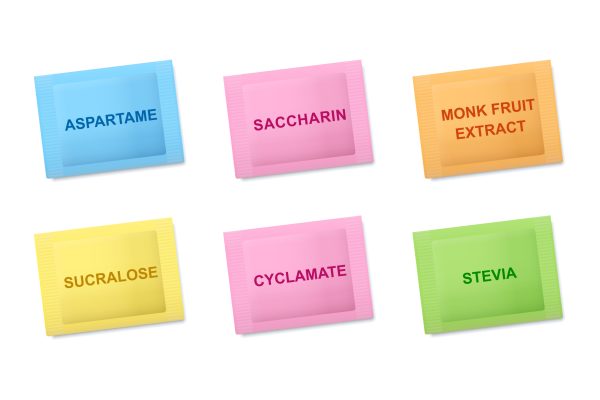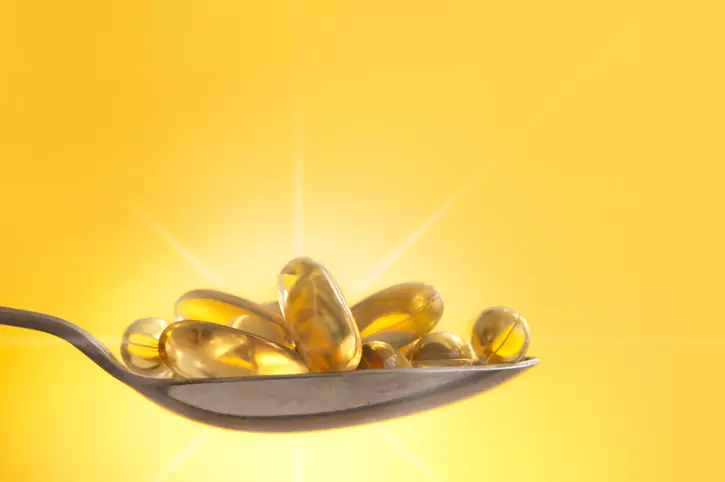
UP TO 40% OFF SITEWIDE






Discover the Substitute for Sugar in Diabetes


Table of Contents
- The Science behind Sugar and Diabetes
- Understanding the Glycemic Index
- Blood Glucose Levels and Diabetes
- The Role of Added Sugar
- FDA Guidelines
- Natural Sweeteners as a Substitute for Sugar in Diabetes
- Stevia
- Monk Fruit Extracts
- Sugar Alcohols: Xylitol, Erythritol and Their Effects
- What are Sugar Alcohols?
- Xylitol
- Erythritol
- Grocery Store Guide: How to Find Natural Sweeteners
- Artificial Sweeteners and Their Impact
- Aspartame - What You Need to Know
- Sucralose - Is It Safe for People with Diabetes?
- Calorie Sweeteners - Low-Calorie Options
- Side Effects - Potential Risks of Artificial Sweeteners
- Practical Applications in Food and Beverages
- Baked Goods
- Drinks and Smoothies
- Cooking
- Small Amount Usage
- Making an Informed Choice
- Reading Labels
- Consult Your Doctor
- Taste Test
- Long-term Effects
- Conclusion
- About The Author
Imagine this: you're at a cozy café, enveloped in the aroma of freshly brewed coffee. Your eyes roam the menu, lingering on a list of sugary drinks and delectable desserts. You're tempted, very tempted, but then reality sets in—you have diabetes. The daily challenge of balancing life's sweet pleasures with stable blood sugar levels is real. That's why choosing the right "substitute for sugar in diabetes" is not just a food preference, but a health necessity.
With numerous options ranging from natural sweeteners like stevia to artificial ones like aspartame, making an informed choice can be overwhelming. But fear not; this article is your comprehensive guide.
We'll break down the science, benefits and drawbacks of various sugar substitutes. Whether you're an aspiring baker or just want to sweeten your morning coffee without guilt, this guide has you covered.
The Science behind Sugar and Diabetes
Understanding the Glycemic Index
First, let's dive into the concept of the glycemic index (GI). Wondering why some foods cause your blood sugar to spike while others don't? That's where GI comes in. It ranks carbohydrates based on how quickly they raise your blood glucose levels.
High-GI foods digest quickly, causing a swift rise in blood sugar. In contrast, low-GI foods digest more slowly, resulting in a gradual increase. Knowing the glycemic index is vital for diabetics as it helps you select foods that won't destabilize your blood sugar.
Blood Glucose Levels and Diabetes
Now, let's focus on blood glucose levels. When you consume something sweet, your body converts the sugar to glucose which enters your bloodstream. Managing these levels is a delicate balance for those with diabetes.
Too high can lead to complications like kidney damage, while too low poses immediate risks like fainting. Sugar substitutes can be a useful tool for maintaining stable blood sugar, especially when you crave something sweet but don't want to risk your health.
The Role of Added Sugar
Added sugar is the hidden culprit in many of our favorite treats. Unlike the natural sugars in fruits and vegetables, added sugar lacks nutrients and can spike your blood glucose quickly.
The FDA advises limiting your intake of added sugar for good reason. While grocery shopping, look for labels indicating "no added sugar" or "sugar-free" to make healthier choices.
FDA Guidelines
Finally, let's look at the FDA's standpoint. According to the Food and Drug Administration, not all sugar substitutes are the same. Some, like stevia and monk fruit, are natural, while others like aspartame are artificial. The FDA has approved several types, deeming them safe for consumption even for diabetics.
However, moderation is key. Just because a product is labeled "low-calorie sweetener" doesn't mean you should overindulge. To summarize, understanding the science behind sugar and diabetes can empower you to make informed decisions.
Consider the glycemic index, be mindful of added sugar and heed FDA guidelines when choosing a sugar substitute. Managing diabetes isn't just about avoiding sugar; it's about aligning your choices with your overall health goals.
Natural Sweeteners as a Substitute for Sugar in Diabetes
When it comes to stop sugar and finding a "substitute for sugar in diabetes," natural sweeteners frequently gain attention. They offer the sweetness we desire without the added sugar that disrupts our blood glucose levels. But do they live up to the hype? Let's explore two popular options: Stevia and Monk Fruit Extracts.
Stevia
Ah, Stevia! You've likely seen this natural sweetener at the grocery store, displayed right next to regular sugar bags. Made from the leaves of the Stevia rebaudiana plant, this sugar alternative has become increasingly popular in the food and beverage industry.
Benefits:
First, Stevia has a glycemic index of zero, meaning it won't spike your blood sugar levels. This makes it a great choice for people with diabetes.
It's also calorie-free, offering added benefits for those watching their weight as well as their blood glucose. Stevia's versatility is another advantage; you can include it in baked goods, smoothies, or even your morning coffee. Moreover, its sweetness surpasses that of sugar, so you need less of it.
Drawbacks:
However, Stevia is not without its downsides. Some individuals report a bitter aftertaste which could be a deal-breaker. Also the FDA has approved only specific high-purity steviol glycosides, so careful label-reading is crucial.
Overuse might lead to side effects like nausea and digestive problems. Additionally, while Stevia originates from a natural source the processing may involve various chemicals.

Color codes of sugar substitute packets. Sweetener pouches, color definition. Blue for aspartame, pink for saccharin or cyclamate, yellow for sucralose, orange for monk fruit extract, stevia is green.
Monk Fruit Extracts
Next, let's consider monk fruit, another natural sweetener gaining traction. Originating from a small, melon-like fruit native to Southeast Asia, monk fruit sweetener has recently entered the Western market but has ancient roots in traditional Chinese medicine.
What it is:
To make monk fruit extracts the seeds and skin are removed and the fruit is crushed to collect the juice. The resulting sweetener comes from drying this juice into a concentrated powder. Like Stevia, monk fruit also has a glycemic index of zero, positioning it as another suitable sugar alternative for diabetics.
How it Affects Blood Sugar Levels:
Good news—monk fruit doesn't impact blood sugar levels, making it an ideal choice for managing type 2 diabetes. It's also calorie-free and rich in antioxidants.
You can use it in a variety of foods and drinks, including baked goods and teas. However, it's essential to note that monk fruit is often blended with other sweeteners or bulking agents. These additional ingredients can influence its overall effect on your blood sugar. So, always read the label to make sure you're getting pure monk fruit extract.
Sugar Alcohols: Xylitol, Erythritol and Their Effects
In finding a "substitute for sugar in diabetes," sugar alcohols like Xylitol and Erythritol often emerge as compelling choices. But what are sugar alcohols and how do they impact your blood sugar?
What are Sugar Alcohols?
Sugar alcohols are carbohydrates that the body doesn't fully absorb, making them lower in calories than regular sugar. You'll often find them in sugar-free and "low-calorie sweeteners," particularly in baked goods and sugar-free gum. Before you head to the grocery store, let's explore the details of Xylitol and Erythritol.
Xylitol
Xylitol, primarily derived from birch trees, is a sugar alcohol as sweet as sugar but with 40% fewer calories. Sounds like a great deal, right? Generally, yes. Xylitol has a low glycemic index, meaning it minimally affects your blood sugar, making it appealing for people with diabetes.
However, it's not all good news. Consuming large amounts of Xylitol can lead to digestive issues like gas and bloating. Additionally, it's toxic to dogs, so you'll need to exercise caution if you have a pet.
Erythritol
Another sugar alcohol to consider is Erythritol, naturally found in fruits like grapes and melons. It's 60-70% as sweet as sugar but almost calorie-free.
Moreover, it has no impact on blood sugar or insulin levels, making it a safe choice for those with diabetes. But Erythritol also has drawbacks. Some people report a cooling sensation in their mouth upon consumption and large quantities may cause digestive discomfort.
Grocery Store Guide: How to Find Natural Sweeteners
Finding the right sugar substitute at a grocery store can seem like a treasure hunt, especially when you're seeking options that align with your health goals. So, how do you navigate this? First, skip the regular sugar aisle and head to the "health food" or "organic" sections. Look for labels that indicate "sugar-free," "low glycemic index," or "natural sweetener" to identify potential options.
Always check the ingredients list to make sure there's no added sugar or high-calorie sweeteners. Another helpful strategy is to use your smartphone. Many stores offer apps that allow you to search for products by category. Simply type "natural sweeteners" or "sugar substitutes" to get a list of available options. This can save you both time and effort.
Lastly, if you're still uncertain, don't hesitate to ask for help. Store employees often know their products well and can point you in the right direction. Online forums or communities where people with diabetes discuss their preferred sugar substitutes can also be useful resources. Remember, finding the right sugar substitute may take some time, but your health is worth the effort.
Artificial Sweeteners and Their Impact
Aspartame - What You Need to Know
Aspartame is as controversial as it is sweet. First, it's FDA-approved, signifying thorough testing. What's its effect on blood glucose levels? Good news— aspartame has a minimal impact on blood sugar, making it a solid option for diabetics.
However, moderation is crucial. Large amounts can cause headaches or digestive issues. So, a little can go a long way when adding aspartame to your food and drinks.
Sucralose - Is It Safe for People with Diabetes?
Sucralose is another widely-used artificial sweetener. Its heat stability makes it suitable for baking. Is it safe for diabetics? Generally, yes. With a glycemic index of zero, sucralose won’t spike your blood sugar.
But be cautious—some products containing sucralose also have ingredients that can impact blood sugar. Always read labels carefully. Like aspartame, moderation is key; excessive use can cause bloating or diarrhea.
Calorie Sweeteners - Low-Calorie Options
For those managing both sugar levels and calories, low-calorie sweeteners like saccharin and cyclamate can be useful. They have fewer calories than sugar but are not entirely calorie-free.
They can be a good alternative, particularly for managing type 2 diabetes and weight. However, low-calorie doesn't mean side-effect free. Consult your healthcare provider before regularly incorporating them into your diet.
Side Effects - Potential Risks of Artificial Sweeteners
Now, let’s address the elephant in the room: side effects. Although generally safe for most people, artificial sweeteners have some drawbacks. Common side effects include digestive issues, headaches and mood swings.
Additionally, ongoing research is investigating the long-term impact of these sweeteners, especially concerning weight gain and metabolic changes. If you're aiming to manage your diabetes, carefully weigh the pros and cons.
Practical Applications in Food and Beverages
So, you've decided to switch to sugar substitutes and are now wondering, "How do I incorporate these into my daily life?" No worries, we've got you covered. From baking to smoothies, let's explore practical ways to use sugar substitutes in your food and drinks.
Baked Goods
Ah the aroma of fresh cookies or warm bread—it's tempting, isn't it? But traditional recipes can be problematic if you're monitoring your blood sugar. The good news? Many sugar substitutes work well in baked goods. For example, stevia is a natural option that can often replace sugar. However, consider the glycemic index of the substitute you choose.
Also, some alternatives, like sugar alcohols, can add moisture, so you may need to tweak other ingredients. Baking is a science and even a minor mistake can spoil your creation. Always do a test run before making a large batch.
Drinks and Smoothies
Who doesn't enjoy a refreshing drink on a hot day or a creamy smoothie for breakfast? However the sugar content in standard recipes can wreak havoc on your blood glucose. Sugar-free options are your friends here.
Artificial sweeteners like aspartame or natural ones like monk fruit can sweeten your beverages without spiking your blood sugar. When shopping, look for drinks marked "sugar-free" or "no added sugar." But exercise caution; always check the label to ensure there are no hidden sugars or high-calorie sweeteners.
Cooking
Cooking with sugar substitutes can be challenging but entirely possible. Whether you're preparing a savory dish needing a hint of sweetness or a sauce requiring some sugar, options abound. Sucralose, for example, remains stable at high temperatures, making it ideal for cooking.
If you're wary of artificial sweeteners, natural alternatives like stevia are available. Keep in mind that sugar does more than just sweeten; it also affects texture and caramelization. So, you might need to do some experimenting. If you're cooking for people with diabetes, adding a supplement like SugarMD Advanced Glucose Support could help manage blood sugar levels.
Small Amount Usage
You'll find that a little sugar substitute can go a long way. Unlike regular sugar, many substitutes are much sweeter, so you'll need less to achieve the desired sweetness.
This is crucial for calorie-counters. A small amount can make a big difference in not only taste but also calorie content and blood sugar impact. Start small and adjust according to your taste and dietary requirements.
Making an Informed Choice
When it comes to finding the perfect "substitute for sugar in diabetes," the array of options can be dizzying. From grocery store aisles brimming with sugar-free products to the latest health articles touting various alternatives, it's easy to feel overwhelmed. However, making an informed choice is vital, especially if you have diabetes. Let's go through some steps to guide you in making that decision.
Reading Labels
Ever found yourself in a grocery store, squinting at the minuscule text on food labels? You're not alone. Understanding these labels is crucial for managing your blood sugar. Look for terms such as "sugar-free," "no added sugar," or "low glycemic index," which indicate the product may be a suitable sugar substitute.
Be cautious, though. "Sugar-free" doesn't automatically mean it's healthy. Some products replace sugar with other calorie-rich sweeteners or fats. Also, take note of the serving size; a small portion of a sugar substitute can have a significant impact. Finally, examine the list of ingredients for any artificial sweeteners or sugar alcohols. These substances can cause side effects in some people, so it's important to know what you're ingesting.
Consult Your Doctor
Before making any significant changes to your diet, it's crucial to consult your healthcare provider, especially if you have type 2 diabetes or other health conditions. They can offer insights into how different sugar substitutes could affect your blood sugar levels and might even recommend specific brands.
Additionally, your doctor can inform you about the long-term implications and potential side effects of using certain substitutes. For example, some aren't advisable for pregnant women or children. A quick conversation with your healthcare provider can help you avoid unnecessary health risks.
Taste Test
Let's be honest; taste matters. Finding a sugar substitute that pleases your palate is crucial. Whether you're using it for baking or your morning coffee the right substitute can make all the difference. Consider sampling small packets of various substitutes.
Some people enjoy stevia but find aspartame too bitter. Others may prefer the mouthfeel that sugar alcohols like xylitol offer in baked items. Experimenting is key to discovering what you like.
Long-term Effects
Although many sugar substitutes have received FDA approval, research on their long-term health effects continues. Some studies hint at potential impacts on gut health, while others suggest they could affect metabolism.
Natural sweeteners like stevia and monk fruit generally have a safe reputation but aren't without some concerns. Excessive consumption of sugar alcohols, for instance, can result in digestive issues. Staying current on research and seeking professional healthcare advice are essential for making an informed decision. Remember, our understanding may evolve, so it's good to be adaptable.
Conclusion
Navigating the world of sugar substitutes is complex, but we've covered a lot of ground—from understanding labels to consulting healthcare providers and even exploring supplements like SugarMD Advanced Glucose Support. When searching for the ideal "substitute for sugar in diabetes," remember it's not just about satisfying your sweet cravings; it's about managing your health effectively.
So the next time you face a tempting array of sweet options in the grocery store, you'll be well-prepared to make a health-conscious choice. Managing diabetes is a lifelong commitment and every step you take matters. Go ahead and enjoy that cup of coffee or that slice of cake—just make sure it's the right kind of sweet for you.
About The Author
Meet Dr. Ahmet Ergin a highly skilled and dedicated endocrinologist with a passion for diabetes care. Dr. Ergin earned his medical degree with honors from Marmara University in Istanbul. He completed internal medicine residency and endocrinology fellowship at Cleveland Clinic.
Dr. Ergin is board-certified in Internal Medicine, Endocrinology, Diabetes and Metabolism due to his vast medical expertise. He's a certified diabetes educator, author of "The Ultimate Diabetes Book," and founder of "the SugarMD YouTube channel."
Dr. Ergin offers exceptional diabetes care to his patients in Port Saint Lucie, FL, helping them manage effectively. Disclaimer: These statements have not been evaluated by the Food and Drug Administration. Information on this website isn’t intended to treat, cure or prevent any disease. Discuss with your doctor and do not self-treat.
Written By Dr. Ahmet Ergin
466 total articles
Meet Dr. Ahmet Ergin, a highly skilled and dedicated endocrinologist with a passion for diabetes care. Dr. Ergin earned his medical degree with honors from Marmara University in Istanbul. He completed internal medicine residency and endocrinology fellowship at Cleveland Clinic. Dr. Ergin is board-certified in Internal Medicine, Endocrinology, Diabetes, and Metabolism due to his vast medical expertise. He's a certified diabetes educator, author of “The Ultimate Diabetes Book,” and founder of “the SugarMD YouTube channel.” Dr. Ergin offers exceptional diabetes care to his patients in Port Saint Lucie, FL, helping them manage effectively. For a closer look into his insights and experiences, connect with Dr. Ahmet Ergin on LinkedIn, Instagram, and YouTube.”
Disclaimer: These statements have not been evaluated by the Food and Drug Administration. Information on this website isn't intended to treat, cure or prevent any disease. Discuss with your doctor and do not self-treat.
Products















